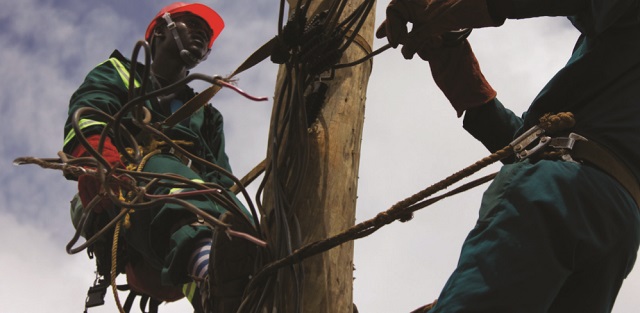
Amendment provides opportunities
Babungi, however, said the amendment provides an opportunity for the government which is focusing on investing resources for growth, connecting more customers using Umeme as a platform.
He said Umeme is connecting 16, 000 customers on the grid per month and are targeting to have more than four million customers on the grid in the coming few years from the current slightly over one million.
“So we have the same goal with government,” Babungi said, adding, connecting more customers, ensuring efficiency in the system and collecting more money to stabilise the system.”
More numbers
According to the half year financial results, the company’s revenue grew by 6.9% year-on-year to Shs 707 bn in 2017 driven by 6.7% increase in units sold and price adjustments.
The company says growth in sales has been high in large industrial and domestic household consumers. On the other hand, gross profit increased marginally at 2.6% as cost of sales increased by 9.0% influenced by a 9.6% year-on-year increase in power purchase costs.
Units purchased increased by 4.55% to GWh 1, 630.70 while gross profit was significantly affected by the capital investments excluded from the tariff at the start of the year.
Customers on pre-paid metering increased to 70.1% of the customer base compared to 65.0% as at December 2016.
Prepaid metering revenue as a share of total revenue increased to 20% from 16% as at December 2016 supported by increased prepayment penetration and installation of customised pre-payment metering technology at selected government installations.
Net finance costs increased by 35% during the period while term debt as at June 30 2017 decreased to US$180.5 million, down from US$197.8 million as at December 2016.
Meanwhile, ERA owes Umeme US$24 million (Shs 87 billion) resulting from power supply reconciliation.
“What this means is that when we reconcile the price at which we are paying for our electricity from the transmission company compared to what we should be paying over since 2010 to now, we have overpaid by twenty four million dollars,” Babungi explained, adding the matter has been brought to the attention of the regulator and we hope that once this money hits our books of accounts from a cash flow perspective, it will be a big boost.
Concession talks and outlook
With seven years left for Umeme’s license to expire, management is unsettled. Babungi said they are using achievements relating to energy losses, capital investments, customer connections and more recorded over the years to engage government on the possibility of having their concession renewed. He said continued investment needs to be in linw with the electricity distribution infrastructure for the upcoming 783MW generation capacity of Isimba and Karuma Hydro Power projects.
Babungi said that commitment by government to renew their concession would boost efforts of capital mobilisation by the company to boost network stability and expansion.
Key facts in amended Umeme license
- Umeme will utilise the revenues that may arise from reconciliations of energy purchases for the benefit of electricity consumers; to leverage grant or concessional financing
- Investments made using reconciled revenues and grant financing shall not form part of part of Umeme assets
- Investments made using reconciled revenues and grant financing shall not earn a return
- The costs associated with investing the reconciled amounts shall not be borne by Umeme Limited
- Umeme shall earn a reasonable Management fee for investing the reconciled amounts
Key numbers
- Energy losses declining from 26.1% (2012), 24.3% (2013), 21.3% (2014), 19.5 %(2015), 19.0% (2016), 17.5% (2017 half year)
Revenue collections
- 94% (2012), 100.3% (2013), 99.1% (2014), 98.2% (2015), 98.4% (2016), 99.9% (2017 half year)
****
 The Independent Uganda: You get the Truth we Pay the Price
The Independent Uganda: You get the Truth we Pay the Price



